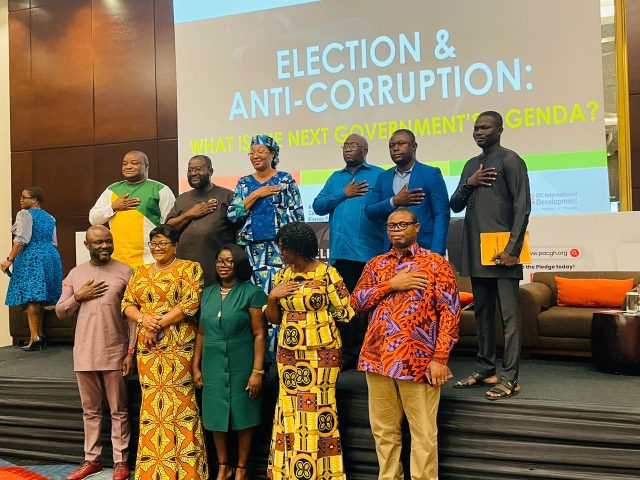Mr. Benjamin Boakye, Executive Director of the Africa Centre for Energy Policy (ACEP), has identified corruption as Ghana’s greatest challenge, calling for systemic reforms to overhaul governance ahead of the December 2024 elections.
Speaking during the Anti-Corruption Forum in Accra, themed “Elections and Anti-Corruption: What is the Next Government’s Agenda?”, Mr. Boakye emphasized the need for political leaders to prioritize the fight against corruption and introduce measures to enhance efficiency and accountability in governance.
“Corruption continues to be Ghana’s biggest obstacle, draining public resources and undermining development,” he stated. “As we approach the 2024 elections, citizens must demand commitments from political parties to address these issues with clear, actionable reforms.”
Mr. Boakye proposed several measures, including limiting the number of ministers to reduce government spending, allowing the President to appoint qualified individuals outside Parliament, enforcing competitive bidding processes to curb corruption in public procurement, and ensuring that public funds are directed toward development projects rather than private enrichment. He noted that these reforms are critical for transforming the governance structure and saving billions of cedis lost to inefficiencies annually.
The forum is part of the Ghana Anti-Corruption Coalition’s (GACC) Pledge Against Corruption (PAC) Campaign, an initiative supported by partners such as the Africa Centre for Energy Policy (ACEP), Ghana Integrity Initiative (GII), and IMANI. The campaign seeks to secure clear anti-corruption commitments from candidates to serve as a foundation for future accountability.
Engaging Citizens and Political Leaders
The ACEP Executive Director called on Ghanaians to actively engage in the political process by holding leaders accountable for their promises. He urged voters to demand anti-corruption pledges from all political candidates, especially those contesting for the presidency.
“Citizens must ask tough questions during campaigns. Will they reduce the number of ministers? Will they enforce competitive procurement? Will they ensure transparency in the use of public funds? Don’t accept vague promises—demand specifics,” Boakye advised.
ACEP has also launched a platform, www.pscgovgh.org, where citizens can sign a pledge to hold political leaders accountable and push for governance reforms.
A Call for Accountability
As the 2024 elections approach, ACEP is urging political parties to commit to bold anti-corruption measures by signing a public pledge. “This is not the time for rhetoric. Ghanaians need leaders who are ready to act decisively against corruption and prioritize the public interest,” Boakye said.
The Anti-Corruption Forum, attended by civil society organizations, private sector stakeholders, and governance experts, marked a pivotal moment in the push for transparency and accountability in Ghana. With corruption dominating the agenda, ACEP’s campaign underscores the need for a redefined governance framework that puts citizens first.
Source: Isaac Kofi Dzokpo/newsghana.com.gh















